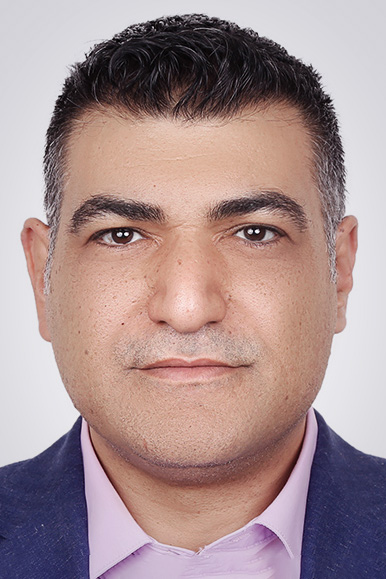

 Internet governance is shifting from participatory forums to security-driven mandates. As authority accelerates ahead of legitimacy, technical systems face growing instability and operators absorb the risks of politically motivated control. more
Internet governance is shifting from participatory forums to security-driven mandates. As authority accelerates ahead of legitimacy, technical systems face growing instability and operators absorb the risks of politically motivated control. more
 A little over a year ago I wrote a series of articles to help guide those with a .brand TLD through the delegation process. After ICANN's recent push for .brands to delegate, the majority are now across the line. There would be many organizations out there currently feeling like first time parents who've just brought a newborn home from the hospital -- it's been a long process already, and the hard work hasn't even begun. more
A little over a year ago I wrote a series of articles to help guide those with a .brand TLD through the delegation process. After ICANN's recent push for .brands to delegate, the majority are now across the line. There would be many organizations out there currently feeling like first time parents who've just brought a newborn home from the hospital -- it's been a long process already, and the hard work hasn't even begun. more
Monika Ermert reporting in IP Watch: "Amidst rising voices that time is of essence to finalize the oversight transition for core internet functions from the United States government to the community of the Internet Corporation for Assigned Names and Numbers (ICANN), governments are divided over what their role should be." more
The Obama administration is developing a package of unprecedented economic sanctions against Chinese companies and individuals who have benefited from their government’s cybertheft of valuable U.S. trade secrets. The U.S. government has not yet decided whether to issue these sanctions, but a final call is expected soon, perhaps even within the next two weeks. more
 Leichtman Research recently released the U.S. broadband customer statistics for the end of the fourth quarter of 2021. The numbers show that broadband growth has slowed significantly for the sixteen largest ISPs tracked by the company. LRG compiles these statistics from customer counts provided to stockholders, except for Cox, which is privately owned. Net customer additions sank each quarter during the year. more
Leichtman Research recently released the U.S. broadband customer statistics for the end of the fourth quarter of 2021. The numbers show that broadband growth has slowed significantly for the sixteen largest ISPs tracked by the company. LRG compiles these statistics from customer counts provided to stockholders, except for Cox, which is privately owned. Net customer additions sank each quarter during the year. more
 IGF 2015 in João Pessoa, Brazil will be seen as a milestone for the global Internet community. After 10 years of intense work, the Internet Governance Forum (IGF) has earned the right to celebrate its success and prepare itself for the future. As we come out of the meeting, we are urging all who want to be heard at this important moment in the evolution of the Internet to join over 110 organizations and individuals who have already signed on to a message to the UN General Assembly that will 1) help safeguard the IGF for the future; 2) preserve the multistakeholder model of governance; and 3) help keep us focused on the work at hand. more
IGF 2015 in João Pessoa, Brazil will be seen as a milestone for the global Internet community. After 10 years of intense work, the Internet Governance Forum (IGF) has earned the right to celebrate its success and prepare itself for the future. As we come out of the meeting, we are urging all who want to be heard at this important moment in the evolution of the Internet to join over 110 organizations and individuals who have already signed on to a message to the UN General Assembly that will 1) help safeguard the IGF for the future; 2) preserve the multistakeholder model of governance; and 3) help keep us focused on the work at hand. more
 In the final three articles in my series looking at algorithms for measuring the similarity of marks, I extend the ideas to provide a more sophisticated and adaptable framework. Article 4 introduces a similarity score based on color distance in RGB space, offering a quantitative approach to trademark similarity. Article 5 refines word mark similarity by using the International Phonetic Alphabet to improve phonetic analysis. The final article presents a method for sorting colors by dominant shade, aiding in trademark review and potential guidelines for color mark protection. more
In the final three articles in my series looking at algorithms for measuring the similarity of marks, I extend the ideas to provide a more sophisticated and adaptable framework. Article 4 introduces a similarity score based on color distance in RGB space, offering a quantitative approach to trademark similarity. Article 5 refines word mark similarity by using the International Phonetic Alphabet to improve phonetic analysis. The final article presents a method for sorting colors by dominant shade, aiding in trademark review and potential guidelines for color mark protection. more
 Struggles with the firmware update process are well known by Network Administrators in the cable industry. The copious tasks required to complete an end-to-end firmware update are painstaking and error-prone, often making the investment not worth the time it takes to complete the work... imagine doing these manual tasks over and over for hundreds to thousands of devices, many from different vendors, each with its own unique device update path! Clearly, this complex challenge needs a solution. more
Struggles with the firmware update process are well known by Network Administrators in the cable industry. The copious tasks required to complete an end-to-end firmware update are painstaking and error-prone, often making the investment not worth the time it takes to complete the work... imagine doing these manual tasks over and over for hundreds to thousands of devices, many from different vendors, each with its own unique device update path! Clearly, this complex challenge needs a solution. more
 Fast and reliable infrastructure of any kind is good for business. That it's debatable for the Internet shows we still don't understand what the Internet i -- or how, compared to what it costs to build and maintain other forms of infrastructure, it's damned cheap, with economic and social leverage in the extreme. Here's a thought exercise... Imagine no Internet: no data on phones, no ethernet or wi-fi connections at home - or anywhere. No email, no Google, no Facebook, no Amazon, no Skype. That's what we would have if designing the Internet had been left up to phone and cable companies... more
Fast and reliable infrastructure of any kind is good for business. That it's debatable for the Internet shows we still don't understand what the Internet i -- or how, compared to what it costs to build and maintain other forms of infrastructure, it's damned cheap, with economic and social leverage in the extreme. Here's a thought exercise... Imagine no Internet: no data on phones, no ethernet or wi-fi connections at home - or anywhere. No email, no Google, no Facebook, no Amazon, no Skype. That's what we would have if designing the Internet had been left up to phone and cable companies... more
 DOTZON's 2025 study analyzes over 410 corporate dotBrands to reveal how companies strengthen digital identities through custom top-level domains. Audi retains first place, while newcomers like CRS and rising performers such as Schwarz demonstrate growing strategic use. more
DOTZON's 2025 study analyzes over 410 corporate dotBrands to reveal how companies strengthen digital identities through custom top-level domains. Audi retains first place, while newcomers like CRS and rising performers such as Schwarz demonstrate growing strategic use. more
James Cowie from Renesys reports: "8.9 magnitude earthquake in Japan has had surprisingly limited impacts on the structure and routing dynamics of the regional Internet. Of roughly 6,000 Japanese network prefixes in the global routing table, only about 100 were temporarily withdrawn from service -- and that number has actually decreased in the hours since the event. Other carriers around the region have reported congestion and drops in traffic due to follow-on effects of the quake, but most websites are up and operational, and the Internet is available to support critical communications." more
 So far this year I think I've attended 20+ security conferences around the world - speaking at many of them. Along the way, I got to chat with hundreds of attendees and gather their thoughts on what they hoped to achieve or learn at each of these conferences. In way too many cases I think the conference organizers have missed the mark. I'd like to offer the following thoughts and feedback to the people organizing and facilitating these conferences (especially those catering to local security professionals). more
So far this year I think I've attended 20+ security conferences around the world - speaking at many of them. Along the way, I got to chat with hundreds of attendees and gather their thoughts on what they hoped to achieve or learn at each of these conferences. In way too many cases I think the conference organizers have missed the mark. I'd like to offer the following thoughts and feedback to the people organizing and facilitating these conferences (especially those catering to local security professionals). more
The Internet Society has released a statement today in support of the timely transition of the Internet Assigned Numbers Authority (IANA) functions to the global Internet community, in light of latest development suggesting possible delays. more
Machina Research, market intelligence provider on the Internet of Things, today published its annual report on the size of the IoT where it has predicted the total number of IoT connections will grow from 6 billion in 2015 to 27 billion in 2025 - a compound annual growth rate of 16%. more
 A long time ago, I worked in a secure facility. I won't disclose the facility; I'm certain it no longer exists, and the people who designed the system I'm about to describe are probably long retired. Soon after being transferred into this organization, someone noted I needed to be trained on how to change the cipher door locks. We gathered up a ladder, placed the ladder just outside the door to the secure facility, popped open one of the tiles on the drop ceiling, and opened a small metal box with a standard, low-security key. more
A long time ago, I worked in a secure facility. I won't disclose the facility; I'm certain it no longer exists, and the people who designed the system I'm about to describe are probably long retired. Soon after being transferred into this organization, someone noted I needed to be trained on how to change the cipher door locks. We gathered up a ladder, placed the ladder just outside the door to the secure facility, popped open one of the tiles on the drop ceiling, and opened a small metal box with a standard, low-security key. more